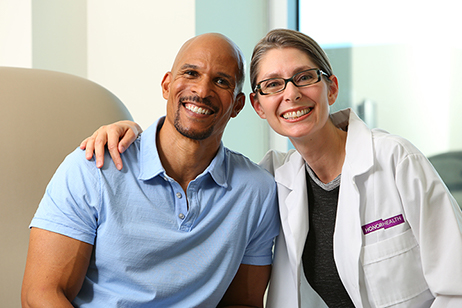What Does Mds Stand for in the Medical Field
What's an MD, DO, NP, PA and MA?
Health and wellness
The initials floating behind your healthcare provider's name can be confusing. Here are some insights on what the letters mean:
MDs, medical doctors
Medical doctors practice the classical form of medicine called allopathic medicine. Making up 90 percent of today's practicing physicians, MDs diagnose and treat disease. MDs practice independently.

Training:
- Four-year college degree
- Four years of medical school
- Three to seven years of residency training, depending on the specialty
- Fellowship training for one or more years in some specialties
What an MD does:
- Diagnoses and manages acute and chronic illnesses
- Orders, performs and interprets diagnostic tests such as lab work and X-rays. Refers to other specialists and healthcare providers as needed.
- Prescribes medications and other treatments
- Manages a patient's care
- Surgeons perform operations
DOs, doctors of osteopathic medicine
DOs practice osteopathic medicine, a more holistic view of medicine. The focus is on seeing the patient as a whole person instead of treating just the symptoms. They practice independently.
DOs also receive training in osteopathic manipulative treatment — moving a patient's muscles and joints with stretching, gentle pressure and resistance — to diagnose, treat and prevent illness. DOs make up 10 percent of practicing physicians in the U.S. today.
Training:
- Four-year college degree
- Four years of medical school
- Internship, residency and fellowship lasting three to eight years
Included in DO education is special training in the body's musculoskeletal system of muscles, nerves and bones.
Medical licenses are governed at the state level by state boards of medicine. In addition, there are 24 medical specialty boards that certify physicians in specialties and subspecialties.
To become board-certified, a physician needs to spend several years after medical school receiving supervised in-practice training followed by written and sometimes oral exams.
What a DO does:
- Diagnoses and manages acute and chronic illnesses
- Orders, performs and interprets diagnostic tests such as lab work and X-rays. Refers to other specialists and healthcare providers as needed.
- Prescribes medications and other treatments
- Manages a patient's care
- Surgeons perform operations
- Can do manipulative treatment of muscles and joints
NPs, nurse practitioners
Nurse practitioners practice in primary, acute and specialty healthcare services. They can be in primary or specialty care, treating the whole person and guiding each patient to make smart health and lifestyle choices. NPs practice independently.
Training:
- Bachelor's and Master's degrees in nursing
- Most graduate programs require more than five years' experience in the medical field before a candidate can apply
- Ph.D. and/or doctorate in nursing (DNP) degree for some nurse practitioners
What an NP does:
- Diagnoses and manages acute and chronic illnesses
- Orders, performs and interprets diagnostic tests such as lab work and X-rays. Refers to specialists or other healthcare providers as needed.
- Prescribes medications and other treatments
- Manages a patient's care
- Focuses on health promotion, disease prevention and health education and counseling
- Practices under the rules and regulations of the state in which they're licensed and are nationally certified in the specialty areas
NPs do not need physician supervision to make clinical decisions.
PAs, physician assistants
The first PAs started training in 1967 at Duke University in North Carolina. The program began to help Vietnam vets who had served as medics.
PAs work in primary and specialty care under the direction and supervision of a licensed physician.
Physician assistants can:
- Diagnose and treat common illnesses and injuries
- Perform certain procedures and minor surgeries
- Prescribe medication
- Order and interpret diagnostic and lab tests
- Offer guidance about health and nutrition
- Refer patients to a specialist and other healthcare providers
Training:
- A master's degree usually is required to be considered for a PA program although most programs require applicants to have work experience as an EMT, paramedic, medical assistant or ER technician. Prior healthcare experience is not always required.
- PA programs typically include at least 2,000 hours of clinical rotations
What a PA does:
- Tracking medical histories and symptoms
- Ordering lab tests and analyzing results with physicians
- Providing a limited number of prescriptions
- Advising patients about preventive healthcare
- Treating minor injuries or sicknesses
- Referring patients to specialists as needed
Licensing and certification: Although laws vary by state, all PAs need to complete an accredited education program and pass a national exam.
MA, a medical assistant
You might think the medical assistant in your doctor's office is a registered nurse, but he or she is most likely a medical assistant. A medical assistant performs both clinical and administrative jobs at doctors' offices, urgent cares and clinics.
Clinical duties may include:
- Taking a patient's medical history
- Explaining treatments to patients
- Preparing a patient for examination
- Helping the physician during exams
- Collecting and preparing lab specimens
- Performing basic lab test
- Preparing and administering medications as directed by a physician
- Teaching patients about medications and special diets
- Drawing blood
- Doing electrocardiograms
- Removing sutures and changing dressings
- Transmitting prescription refills as directed
Administrative duties may include:
- Greeting patients
- Updating patient medical records
- Coding and filling out insurance forms
- Using computer applications
- Answering telephones
- Scheduling appointments
- Arranging for hospital admissions and lab services
- Handling correspondence, billing and bookkeeping
Many employers prefer that medical assistants be certified by the American Association of Medical Assistants.
What Does Mds Stand for in the Medical Field
Source: https://www.honorhealth.com/healthy-living/whats-md-do-np-pa-and-ma
0 Response to "What Does Mds Stand for in the Medical Field"
Post a Comment